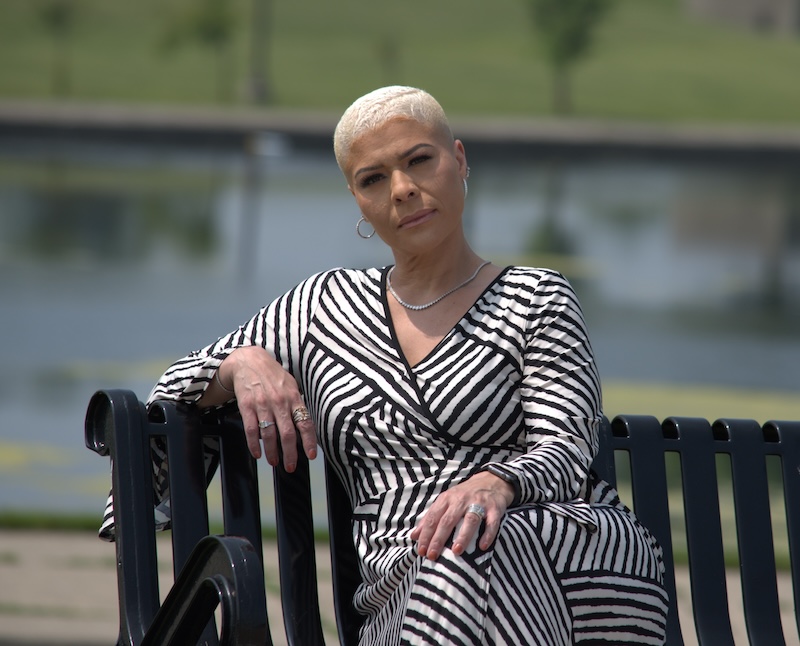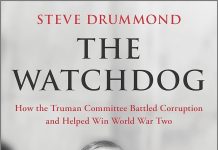When I told author Felicia B. George, during a phone interview, that I hadnāt expected to feel so inspired by a book about gambling (), she ā well, it was as if sheād picked that dayās winning number.
āI got goosebumps, and Iām jumping up and down, because I wanted people to walk away from this book, yes, knowing more about the illegal numbers, but more so, I want you to look at Detroit in a different light,ā George said. āHave we had problems? Absolutely. ā¦ But I hope when people read this book, they can take a step back and go, āOh, my God. This happened in Detroit. These people ā¦ made some way out of no way, and itās something to be proud of.āā
Initially, George expected her doctoral dissertation in anthropology (which was the basis for the book) at Wayne State University to focus on the business end of drug trafficking and its impact on community culture.
āBut I was having this conversation with the chair of my committee, and just in casual conversation, I compared it with numbers gambling,ā George says. āHe said, āWhat do you mean?ā So I start telling him about this, because as a kid, you would see [people playing the numbers] as youāre growing up, but you donāt quite know what it is until you get older. ā¦ When we finished our conversation, he said, āDo me a favor.ā He said, āI want you to go home and think about this. ā¦ I think that this story needs to be told, and itās really not out there.ā ā¦ And the more I thought about it, the more excited I got.ā
As George explains in her book, the man who founded the numbers game, a type of illegal three-number lottery, in Detroit was a Louisiana transplant (and a lawyerās son) named John Roxborough. While working as a bail bondsman, Roxborough learned about a pre-numbers form of gambling called āpolicyā from a Kansas City operator. Roxborough learned the ropes for setting up a policy game, which he did in 1919, and not long after, he launched a (less logistically complicated) numbers game.
Roxborough and other leading numbers bankers of the era (like Everett Watson and Willie Mosley, both of whom, like Roxborough, were Black) didnāt just grow wealthy from the numbers. They also employed many people who were otherwise shut out of the mainstream job market; invested in their community by establishing insurance companies and other much-needed businesses; constructed affordable homes outside of Black Bottom; and funded Black newspapers.
āThese men considered themselves community leaders and ārace men,āā George says. āAnd they parlayed that money they made illegally into legal activities that really did uplift and help the community.ā
Plus, numbers writers, by necessity, did a lot of their work in person, so in a way, the numbers racket was a community-building venture.

āIn order for [a numbers game] to prosper, you have to have trust that [the writer] is going to turn in your number and that youāre going to get paid when your number falls,ā George says. āAnd so these number writers, they were also like the town criers. These were people who were liked in their community. ā¦ And the numbers bankers would use them as foot soldiers.ā
Through these means, political candidates who promised to help the Black community in Detroit got a word-of-mouth boost; players consulted ādream booksā to pick their numbers; and people who needed help (food, for example, or money for college tuition) often got what they needed.
But another way that Roxborough in particular had an impact was by managing, and carefully curating, the public image of heavyweight boxer Joe Louis.
ā[Roxborough] wanted ā¦ to make him an ambassador for the Black and white races so that they could see that Black people, too, could attain something,ā George says. āHe really did a great job in crafting that image of Joe Louis as being ā¦ the first Black American hero.ā
Georgeās book acknowledges the risks inherent in the numbers game, of course, and most of the gameās earliest bankers were eventually jailed. But George nonetheless hopes that these figures will one day be honored and remembered for their contributions.
Roxborough was buried with a small stone that reads 198 (which one dream book said played for āfreeā), and Watsonās grave, in another cemetery, doesnāt even have a marker.
George inquired about buying Watson a headstone, but because sheās not family, she could not.
āIt was just heartbreaking to me,ā George says. āThese people did these great things, and they donāt even have anywhere for you to go mourn and to pay your respects to them.ā
This story originally appeared in the August 2024 issue of ĢĒŠÄvlog°²×æ°ę. To read more, pick up a copy of ĢĒŠÄvlog°²×æ°ę Detroit at a local retail outlet. Our will be available on Aug. 6.
|
| Ģż |
|









